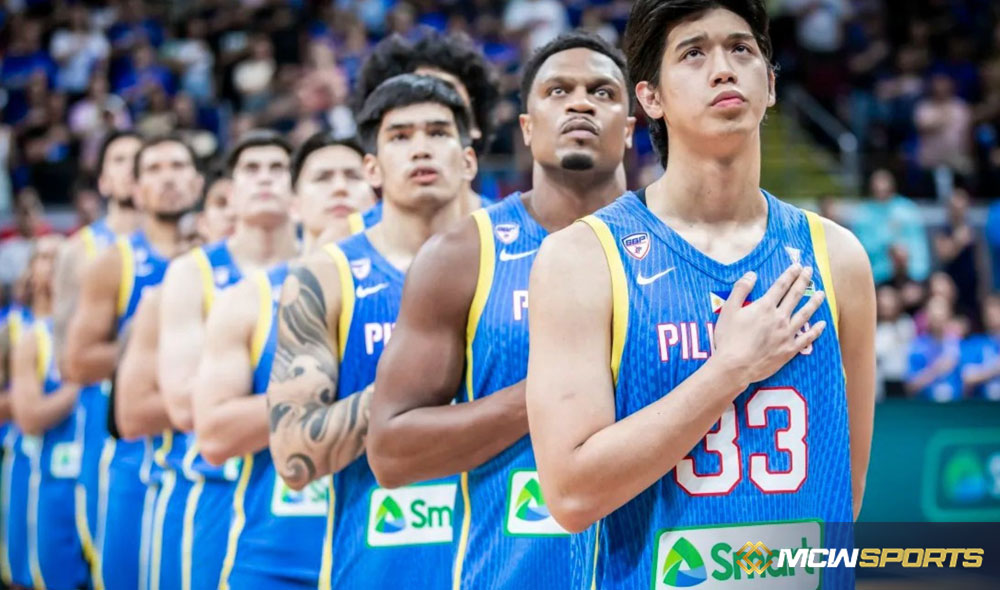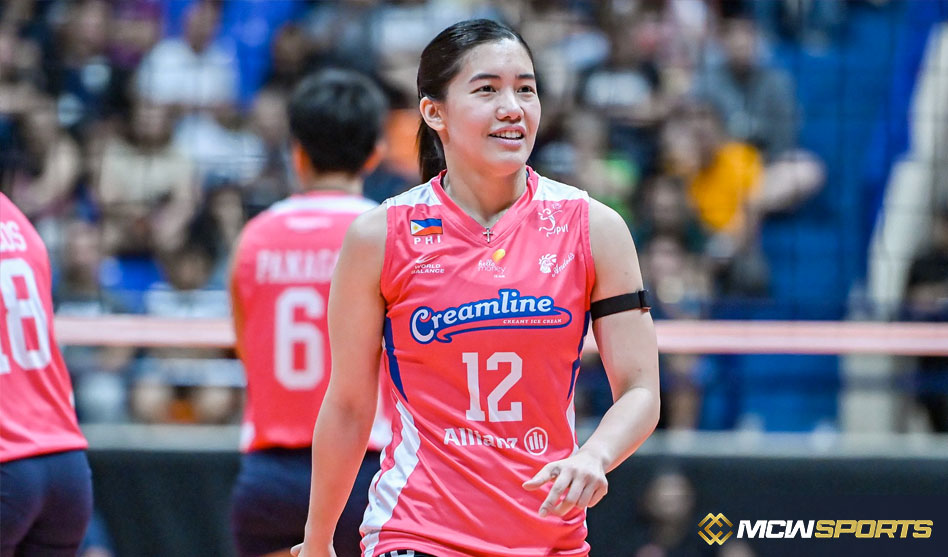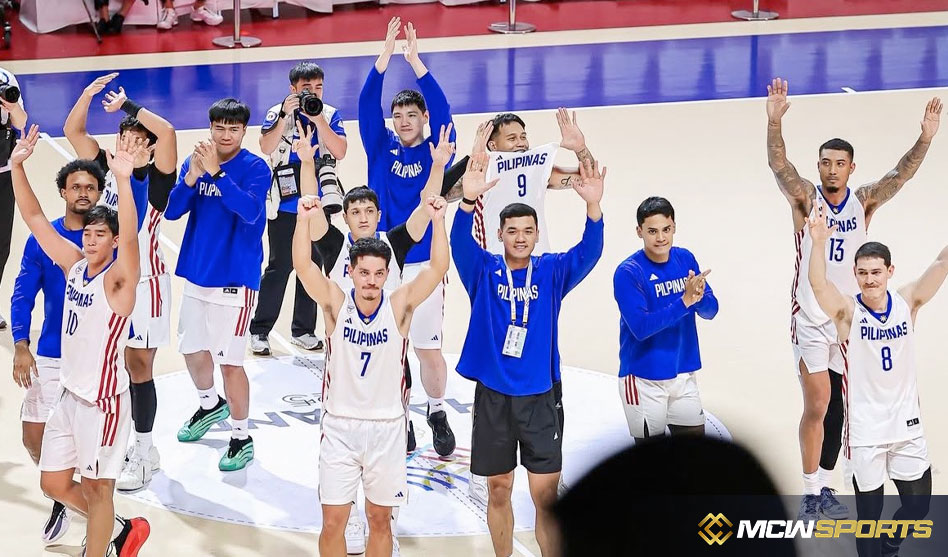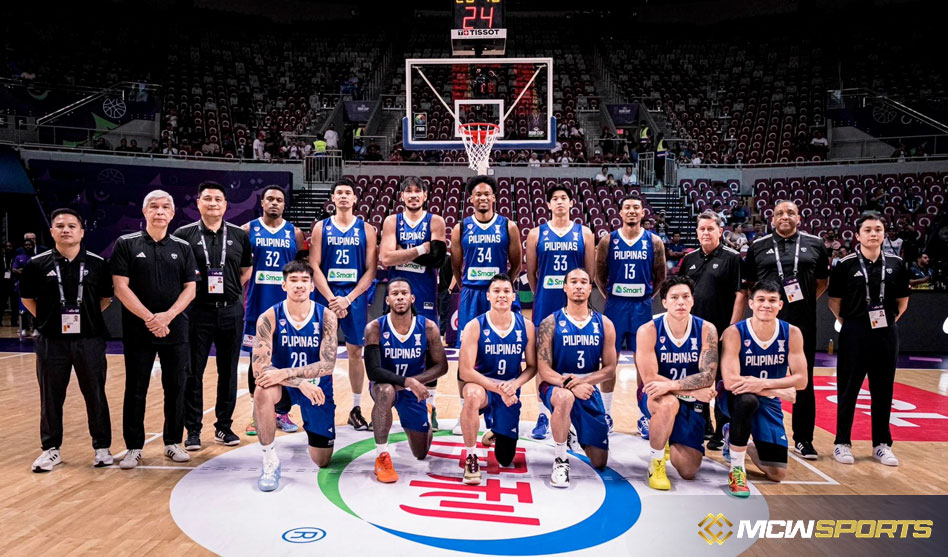MANILA, Philippines – After finishing in a tough bracket with two basketball powerhouses, Australia and New Zealand, in the Asia-Oceania regional qualifications, Gilas Pilipinas confronts a difficult journey to the 2027 FIBA Basketball World Cup. The grouping was decided at the official draw event, which took place early on Wednesday morning (Manila time) at the Al Hazm facility in Doha, Qatar.
The Philippines, which is now 34th in the most recent FIBA world rankings, has been assigned to the qualifiers’ Group A. Australia, ranked seventh in the world, and New Zealand, rated 22nd, are also included in this group. Guam completes the group. Despite not being in the top division, Guam is anticipated to be competitive and is supported by Jericho Cruz, a professional basketball player who was born in the Philippines and plays guard for San Miguel Beer in the PBA.
Given that Australia and New Zealand have both produced consistently impressive performances on the international basketball scene, this development greatly increases the level of difficulty for the Philippine national team. With a wealth of NBA players, Australia, also referred to as the Boomers, has been a consistent competitor for championships in recent international tournaments. Because of their consistent success and focused teamwork, the Boomers won a bronze medal at the 2020 Tokyo Olympics and have remained in the top 10 of the world rankings.
Even though they are not as well-known throughout the world as their Australian neighbors, New Zealand, often known as the Tall Blacks, has established a reputation for playing fast-paced, gritty basketball that has led to impressive performances in regional and international competitions. The Tall Blacks have consistently progressed to the later stages of FIBA championships, demonstrating their ability and threat, especially in the Asia-Oceania circuit.
In addition to being a competitive challenge, Gilas Pilipinas views the draw as a chance to put its young players and long-term basketball development program to the test against top competition. After going through several lineup changes and coaching changes in recent years, the national team now has a defined plan that calls for both player development and strategic preparation in order to guarantee a spot in the 2027 World Cup.
Teams must perform well in their groups throughout the home and away games in order to move on to the next round of the qualifications. Since qualifying is determined by the total records from the first and second rounds, every victory or defeat could be crucial. Gaining wins over any of the top-seeded teams in their bracket would be essential for Gilas to keep up their momentum and increase their chances of moving forward.
The Philippines boasts a wealth of domestic talent and players based abroad who can be called up to bolster the team, even if they are the group’s underdogs. A competitive performance in the qualifications may be possible given the nation’s fervent basketball culture and recent initiatives by the Samahang Basketbol ng Pilipinas (SBP) to improve the national team program.
Guam’s inclusion gives the group an intriguing dynamic. Guam has made consistent improvement in the FIBA Asia Cup Pre-Qualifiers and is thought to be a squad capable of shocking more established countries, while not being placed among the top-tier teams. In addition to his seasoned experience, Jericho Cruz, a well-known name in Philippine basketball circles, adds a distinctive backstory to the Guam vs. Philippines game that is sure to pique local attention.
National teams will start scouting and getting ready seriously once the qualifications get underway later this year. To develop cohesiveness and tactical acuity, the Philippines must identify key players, set up a reliable coaching staff, and participate in rigorous training camps and tune-up games.
Gilas Pilipinas will need to show resiliency, flexibility, and a renewed dedication to on-court brilliance in order to advance to the 2027 FIBA World Cup, which Qatar will co-host. Although their group placement is obviously difficult, it also presents a vital chance to improve Philippine basketball and create a more competitive national program for next international tournaments.

 English
English










